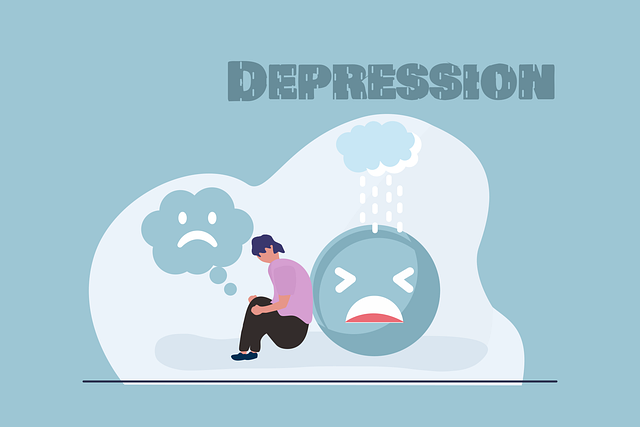Castle Rock Hypnosis Therapy emphasizes cultural competency as a cornerstone of effective mental health care. Through comprehensive training in cultural sensitivity, they help healthcare professionals understand diverse patient backgrounds, improve communication, and tailor stress reduction methods accordingly. This approach not only benefits patients but also strengthens provider-patient relationships, leading to better outcomes and fostering inclusive community connections. Castle Rock Hypnosis Therapy's commitment to continuous learning, workshops, and risk management ensures a culturally competent practice that prioritizes patient satisfaction and ethical care.
Cultural competency training is an essential skill set for healthcare providers, especially in diverse communities. This article explores its significance, focusing on how it enhances provider-patient relationships and improves patient outcomes. We delve into the benefits of cultural training at Castle Rock Hypnosis Therapy, a leading practice that has implemented effective programs. Learn how these initiatives foster understanding, respect, and trust, ultimately revolutionizing healthcare delivery in our multicultural society.
- Understanding Cultural Competency in Healthcare: A Necessary Skill Set
- The Impact of Cultural Training on Provider-Patient Relationships
- Implementing and Evaluating Effective Cultural Competency Programs at Castle Rock Hypnosis Therapy
Understanding Cultural Competency in Healthcare: A Necessary Skill Set

In today’s diverse healthcare landscape, cultural competency is no longer a nice-to-have skill but an essential requirement for providers to deliver quality care. It involves understanding and appreciating the unique cultural backgrounds, values, and beliefs of patients, especially those from different ethnic, racial, or socioeconomic groups. This capability enables healthcare professionals to create inclusive environments, improve patient trust, and enhance treatment outcomes. At Castle Rock Hypnosis Therapy, we recognize that Cultural Sensitivity in Mental Healthcare Practice is paramount for fostering meaningful connections with clients and offering tailored support.
By integrating cultural competency training, healthcare providers gain valuable insights into various factors influencing patient behavior and communication preferences. This knowledge equips them with effective Stress Reduction Methods to address the psychological and emotional needs of diverse populations. Moreover, it promotes resilience building within the provider’s own practice, ensuring they can navigate complex cultural dynamics with sensitivity and expertise.
The Impact of Cultural Training on Provider-Patient Relationships

Cultural competency training is a vital tool for healthcare providers to foster meaningful connections with patients from diverse backgrounds. By understanding and appreciating cultural differences, providers can create an inclusive environment that encourages open communication and trust. This, in turn, enhances patient satisfaction and outcomes, as patients feel heard and respected. For instance, Castle Rock Hypnosis Therapy has recognized the importance of such training, incorporating it into their programs to help therapists navigate complex interpersonal dynamics effectively.
This training equips providers with the skills to adapt their approach, ensuring that care is tailored to individual needs. It enables healthcare workers to address cultural barriers to treatment, such as language differences or beliefs about health and illness. Through interactive workshops and simulations, organizations like Stress Management Workshops Organization can teach strategies for active listening, non-verbal communication, and cultural sensitivity. Equipping providers with these tools not only improves patient relationships but also plays a key role in preventing depression by creating a supportive and understanding healthcare environment.
Implementing and Evaluating Effective Cultural Competency Programs at Castle Rock Hypnosis Therapy

Castle Rock Hypnosis Therapy recognizes the vital role cultural competency plays in providing quality mental health care. Implementing effective programs involves a multi-faceted approach that integrates Mental Health Education Programs Design into their core practices. This includes regular workshops and seminars focused on diverse cultural perspectives, bias awareness, and communication strategies tailored to different communities.
Beyond training, Castle Rock Hypnosis Therapy prioritizes Risk Management Planning for Mental Health Professionals to ensure safe and ethical care. They encourage ongoing self-reflection and feedback mechanisms to evaluate the impact of these programs. By fostering a culture of continuous learning based on Mind Over Matter Principles, Castle Rock Hypnosis Therapy strives to deliver culturally sensitive hypnosis sessions, enhancing patient outcomes and building stronger, more inclusive relationships within their community.
Cultural competency training is no longer a choice but an essential requirement in healthcare. As evidenced by Castle Rock Hypnosis Therapy’s successful implementation of cultural competency programs, investing in such training significantly improves provider-patient relationships and overall patient outcomes. By understanding and appreciating diverse cultural backgrounds, healthcare providers can create more inclusive and effective care environments, ensuring every patient receives the highest quality service tailored to their unique needs.














